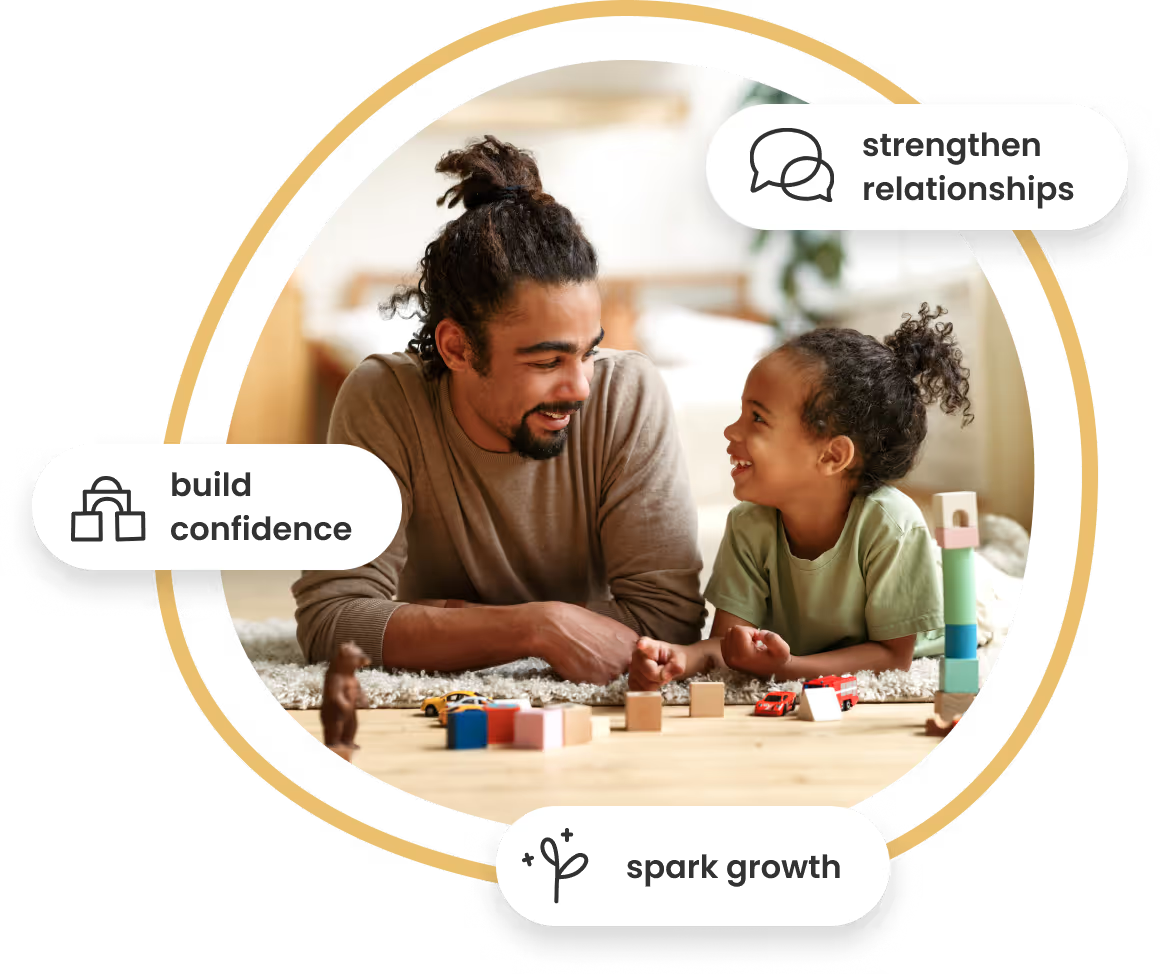Bringing autism services directly to you
In-home developmental therapy for autistic children in Fort Lauderdale



Who We Are
Your families neuroaffirming support network
We celebrate each child’s unique neurodivergent strengths and support them in growing into their authentic self by reaching their full potential through play, connection, and confidence.
Need an autism diagnosis? We offer virtual evaluations with no wait time!


Our Model
Empowerment through play, connection and emotional regulation
We view play as a child’s truest language that’s used to express feelings, creativity, and natural curiosities. Engaging with your child via play fosters a sense of safety, strengthens trust, and supports the development and growth of self-regulation skills for a confident future.
Our Approach
Supporting your child’s growth with you
Our care model extends beyond providing therapy for children. It empowers you with the knowledge and skills to implement therapeutic practices at home, thereby strengthening your relationship with your child.

Integrated, family-focused care is proven to provide lasting results

versus traditional providers typically requiring 30+ hours per week

Children are more receptive to explore and learn when care is delivered at home
Care that adapts to your location and needs
Although most therapy is conducted from home, in-center services are offered to children who need additional support.
In-home care
In-center care
Our Outcomes
Many children experience significant growth in at least one area within six months
Emotional Regulation
Finding the calm to process complex emotions
Communication
Initiating and maintaining meaningful interactions
Social Engagement
Building real relationships based on shared interest & connection
Daily Living
Developing functional capacities for independence
Findings from the preliminary internal program evaluation for children with moderate complexity of support needs over a 10 to 16-month period of continuous care using data collected from 2021 to 2023. A comprehensive care plan is individualized to meet the unique profile and needs of each child with no guarantee of any specific outcome.
Our model works - hear directly from parents
Frequently asked questions
Many insurance companies require an autism diagnosis prior to receiving an evaluation with Positive Development. Your intake coordinator can help to determine insurance requirements.
Positive Development does offer virtual diagnostics (18 months to 9 years old). Learn more here
Signs and symptoms of ASD can vary per child and age. According to the CDC, common signs in a child might include (but are not limited to): avoids eye contact, repeats words or phrases, gets upset by small changes or changes in routine, has obsessive play tendencies (repetition), overly challenging behavior, flaps hands or spins body in circles, is highly sensitive to sounds/textures/smells, shows delayed language or cognitive skills or has obsessive interests.
You can learn more about the top signs of autism here: Top 12 Signs and Symptoms of Autism
Our intake coordinators and Revenue Cycle Team can assist in determining if therapy sessions are covered by your insurance and/or the out-of-pocket cost.
Treatment length varies based on diagnosis, however, your child may show significant growth in as little as six months when engaged with 6-8 hours of weekly therapy.
In short, Traditional Applied Behavioral Analysis (ABA) focuses on specific behaviors, while Developmental Relationship-Based Intervention (DRBI) focuses on the whole child. Traditional ABA has historically been the primary therapy offered for people on the autism spectrum, which teaches skills to gain desired behaviors through reinforcement and discipline, often led by an adult. This approach focuses on observable behaviors and is measured by meeting predetermined developmental goals vs. individualistic goals.
Developmental therapy includes DRBI and is part of the broader DIR® care model, which takes a somewhat different approach.DRBI looks beyond specific (and often stereotyped) behaviors like aggression, rigidity, and withdrawal to understand and address the neurodevelopmental challenges beneath the surface. These challenges may include motor planning, emotional self-regulation, sensory sensitivity, learning disabilities, and speech delays. DRBI is child led, without a pre-determined schedule of events or tasks to complete.
Read more about the core differences between ABA and developmental therapy here: ABA and the Developmental Model: A Slight Controversy in Autism Therapy


